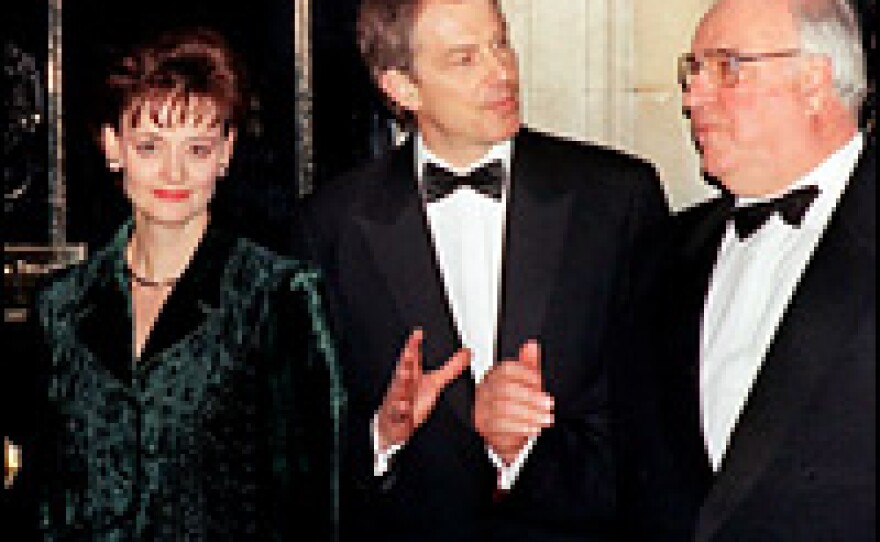In her new memoir, Cherie Blair, the attorney wife of Tony Blair, traces the arc of her life, from Liverpool to Downing Street. As Blair tells Renee Montagne, the book also describes how her family dealt with 10 years of intense change, in Britain and in the world.
When Tony Blair stepped down as Britain's prime minister in 2007, he left under a cloud of criticism for his unstinting support of the Iraq war, in which he was President Bush's strongest ally.
The days of Blair's departure were far different from the era that had ushered him into power, just 10 years earlier. His victory, the first for a Labour Party leader since 1979, was seen as an end to the reign of stuffy conservatives like Margaret Thatcher and John Major.
The new prime minister's politics were liberal and socially conscious. And his young family — led by Cherie Blair, a working mother — was the picture of modern Britain.
The rise to the political spotlight was starkly different from Cherie Blair's working-class origins; that juxtaposition is at the heart of her memoir, Speaking for Myself.
Blair recently described the day in 1997 when she and her family entered the residency of the British prime minister — their new home — for the first time.
"We hadn't had really any sleep, because the election results come out overnight," Blair said.
"And in the morning, we were expected to go to meet the queen and then come in to No. 10 Downing Street. So I said this:
'Nothing can describe my mixture of emotions as the door closed behind us. Not only awe in historical sense, the knowledge that everyone from William Pitt to Winston Churchill had been there, but anxiety — that their baton, heavy with responsibility, had now been passed to Tony. There was also an undercurrent of unease.
I felt like the unnamed narrator of Daphne du Maurier's Rebecca must have, when she arrived at Manderley for the first time. As the new Mrs. De Winter, she might have been the mistress of the house on paper, but in reality she was utterly powerless, because she had no idea what she was up against.' "
"And I was to find that I had no idea what I was against either," Blair said.
Copyright 2023 NPR. To see more, visit https://www.npr.org. 9(MDAzMjM2NDYzMDEyMzc1Njk5NjAxNzY3OQ001))







